How to plan an unforgettable trip to Antarctica
Everything you need to know about planning an adventure on the ice

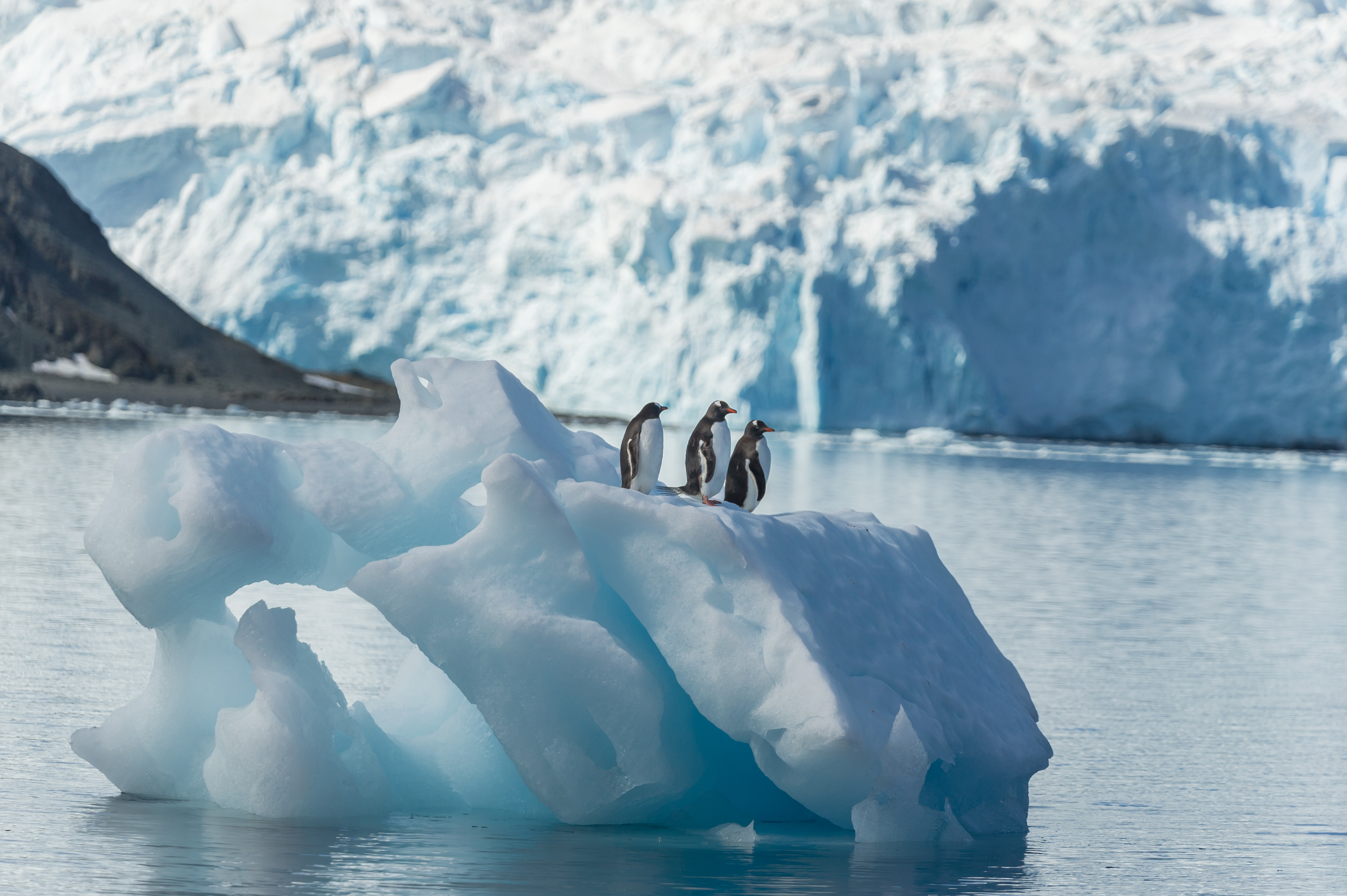
A free daily email with the biggest news stories of the day – and the best features from TheWeek.com
You are now subscribed
Your newsletter sign-up was successful
Antarctica. For the seasoned traveler, it's often the pinnacle of their journeys, the final continent left to conquer. For the newly intrepid, it might be their first big expedition. It doesn't matter when or how they get there, ask anyone who has gone to Antarctica and they'll tell you — nothing compares.
When planning a trip to the seventh continent, there are a lot of things to consider, from when to book to how to get there. Here are some tips and words of advice from travel professionals who know Antarctica.
How soon should you start planning a trip?
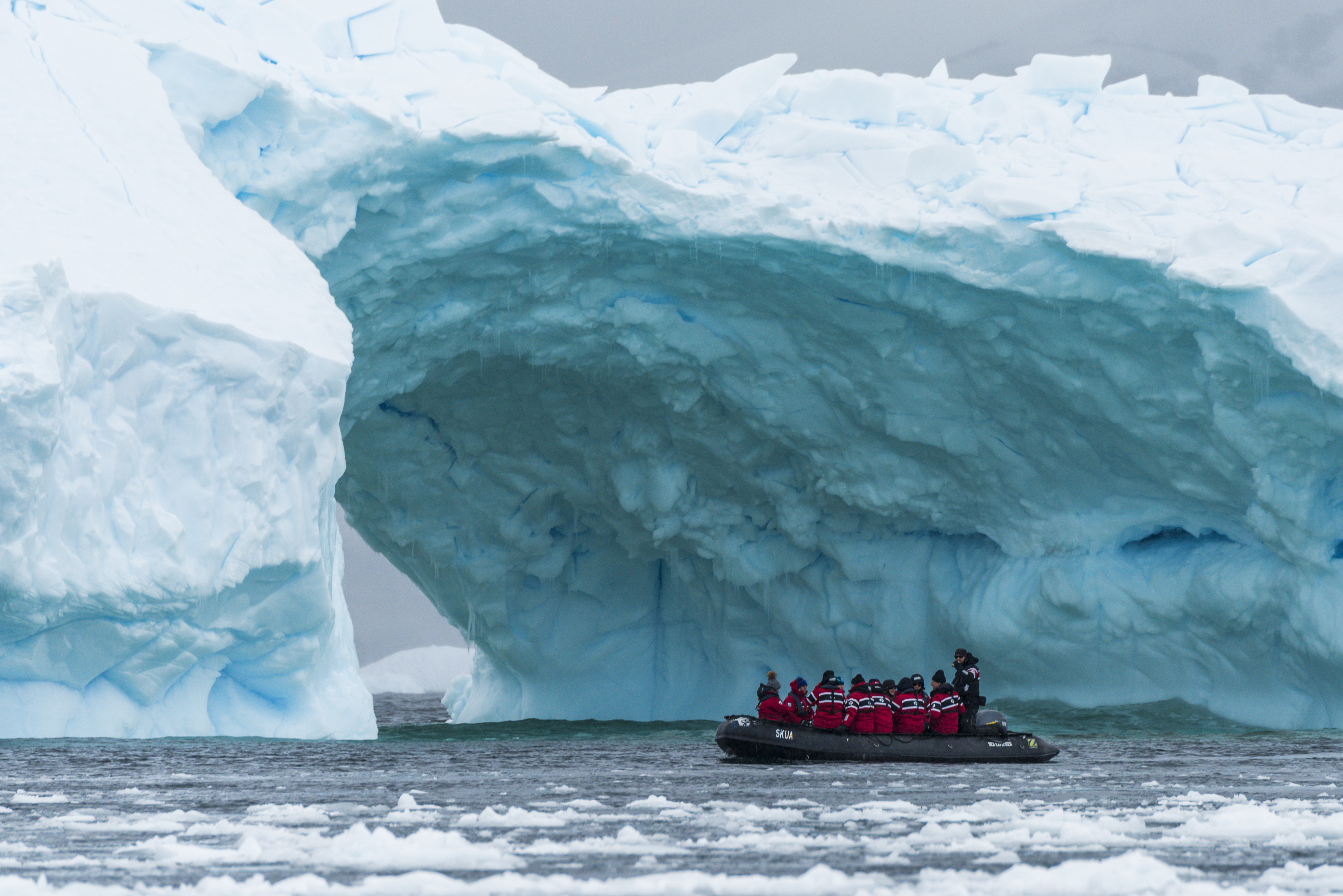
Popular itineraries can go fast, so book as early as possible
It's never too early to start preliminary research. Once you're ready to commit, try to book about a year in advance, especially if there's a specific suite you want on a ship. It's possible to book just a few months ahead, but that could make it harder to find flights.
The Week
Escape your echo chamber. Get the facts behind the news, plus analysis from multiple perspectives.

Sign up for The Week's Free Newsletters
From our morning news briefing to a weekly Good News Newsletter, get the best of The Week delivered directly to your inbox.
From our morning news briefing to a weekly Good News Newsletter, get the best of The Week delivered directly to your inbox.
When it comes to cruise fares, the general rule is that companies start off with their best prices, and as the ship fills the promotions are phased out. However, while there might not be a price reduction, there are often value-added offers, like free excursions or specialty dining.
For most people, a trip to Antarctica is a "once-in-a-lifetime experience and not a trip you want to book on your own," Rob Clabbers, president of Q Cruise + Travel in Chicago, told The Week. Look for a trusted travel adviser or expedition company, and talk to friends and relatives who may have been to Antarctica and can recommend someone.
What's the best time of year to go?
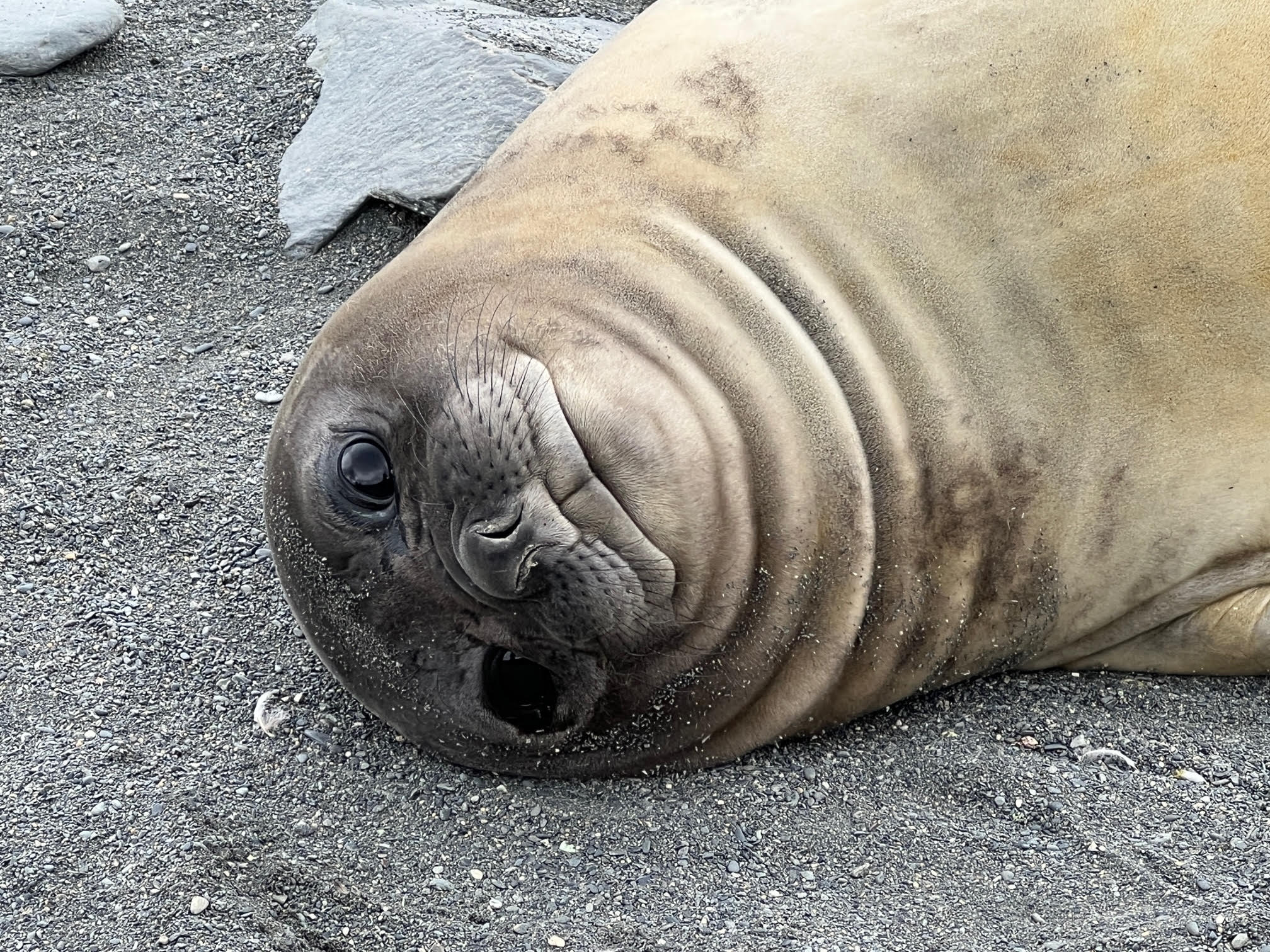
Fur seals breed in Antarctica from November to January
Antarctica's summer is November through March, and during this time, the sea ice has melted enough for ships to get through. There's sunlight all day, and while it's definitely not warm, the summer temperature averages 33 to 36 degrees Fahrenheit. From a wildlife perspective, if you want to see penguin chicks hatching, visit between December and February, but if it's whales you want to spot, the peak time is February and March.
How do you get to Antarctica?

Ushuia is the southernmost tip of South America and also known as "the end of the world"
Most travelers make their way to Ushuaia in the southern tip of Argentina or Punta Arenas in Chile, where they board their ships or hop on a charter plane. There are also some cruises that leave from New Zealand and Australia and a charter plane that brings travelers from Cape Town.
A free daily email with the biggest news stories of the day – and the best features from TheWeek.com
Crossing the Drake Passage can be rough — is there a way to avoid it?
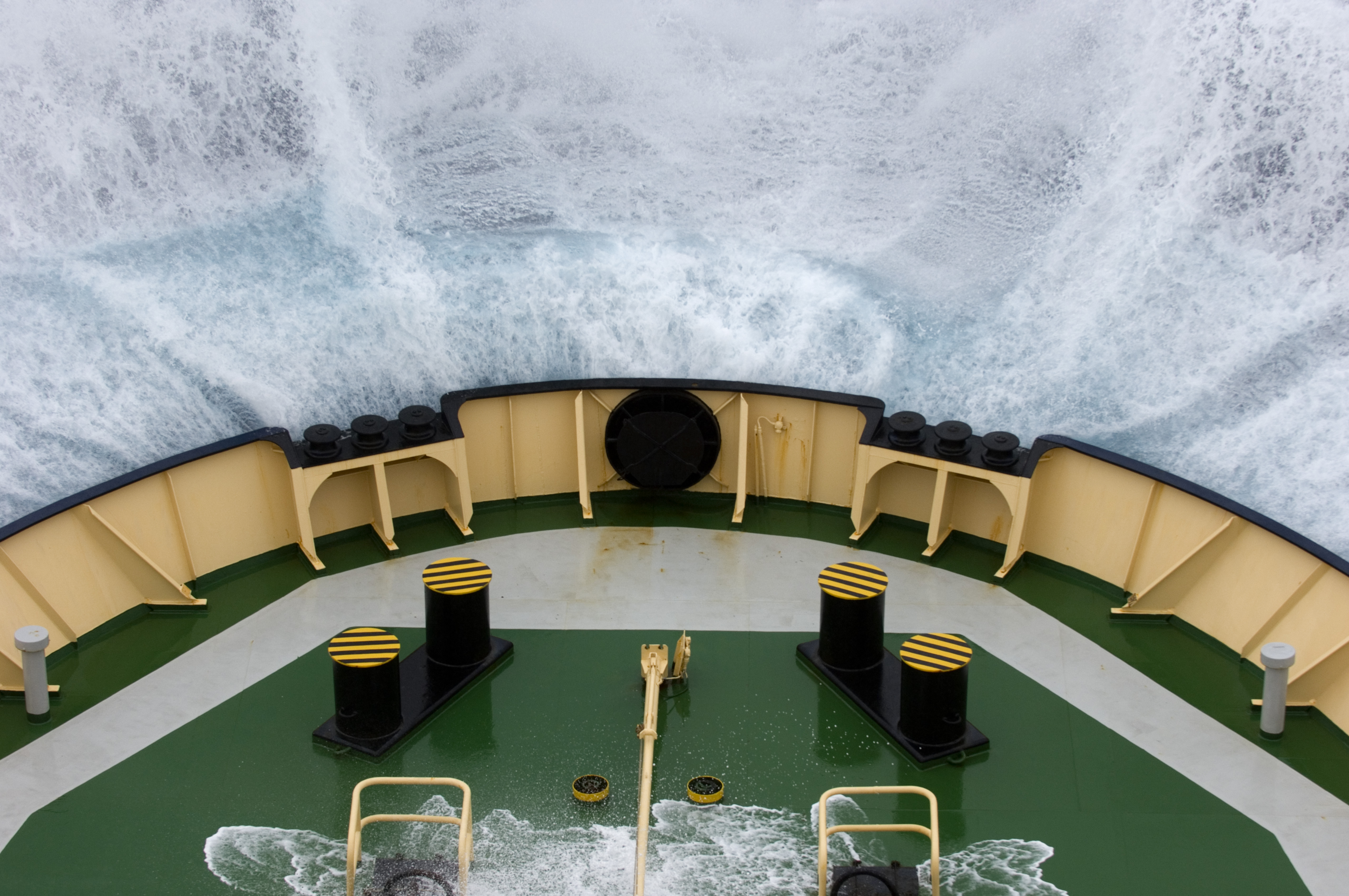
It can be a bumpy ride on the Drake Passage
The Drake Passage is the body of water between South America's Cape Horn and Antarctica's South Shetland Islands, and because of the convergence of oceans and different temperatures, it can be a wild ride. Ships have stabilizers that can help smooth the journey a little, and it's important to remember that not every crossing is a rough one — that's why there's the expression "The Drake Lake or the Drake Shake."
If you're concerned, talk to your doctor before you go about medication and bands to put on your pressure points, or go all out and take one of the charter planes that flies to Antarctica, skipping the Drake Passage entirely. Clabbers finds that the "Drake Passage is part of the experience, and gets you ready for the adventure you're about to embark on."
Will the weather dictate what you see?
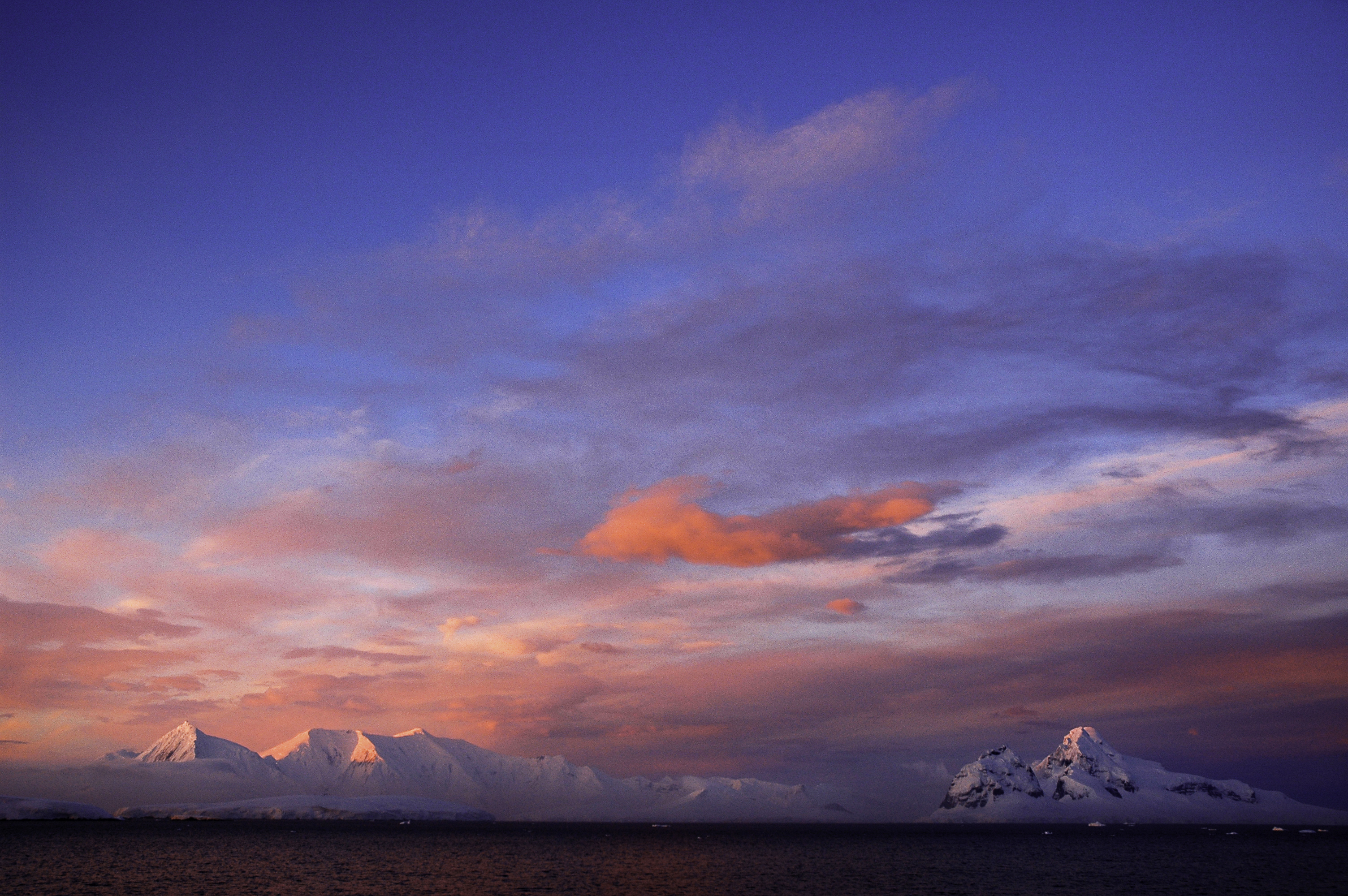
The weather can change in an instant in Antarctica, and so can your plans
Definitely. Angela Pierson, senior vice president of sales and marketing for Wallace Pierson Travel in Amelia Island, Florida, told The Week captains routinely have to change their schedules and itineraries due to the ever-changing weather. "It's exciting, and you feel like you're on a true expedition with this change of pace," she added.
What's the difference between a traditional cruise and an expedition cruise?
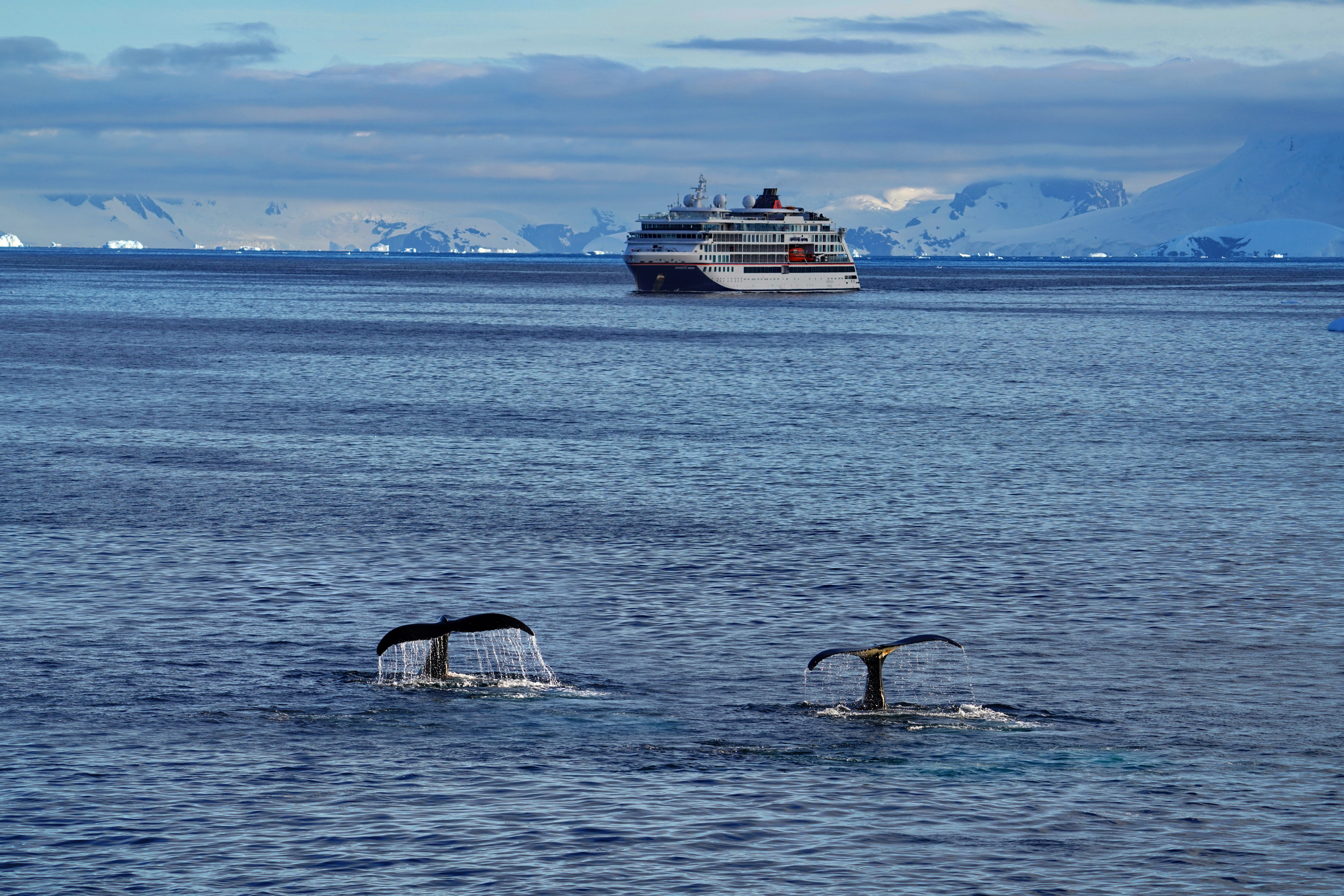
Only smaller ships are allowed to bring passengers to land
Traditional cruise ships can hold several thousand passengers, while expedition cruises are much smaller, and usually cap out at around 250 passengers. Under regulations put in place by the International Association of Antarctica Tour Operators (IAATO), cruise ships with more 500 passengers cannot land any passengers while in Antarctic waters; these larger ships instead provide a scenic sailing from a distance, usually as part of a South America or world itinerary.
Expedition vessels are able to maneuver through narrow and shallow areas, and ice-class ships have reinforced hulls to go through the ice. Regulations are also in place for expeditions, and only 100 guests are allowed to land at one site at the same time. This is to protect Antarctica and prevent invasive species from being introduced.
What can you expect in Antarctica?
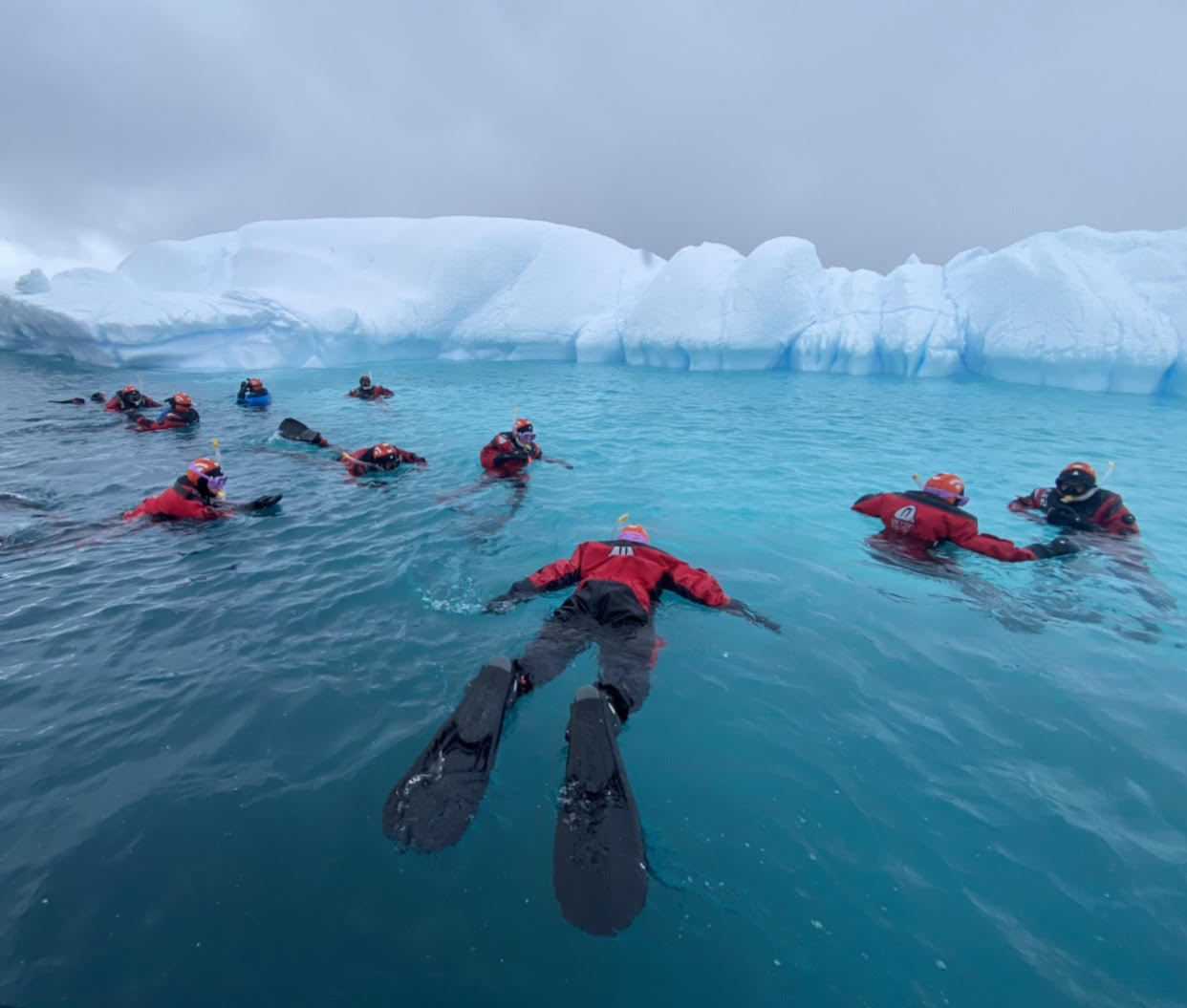
Snorkeling in Antarctica is an option for some cruise ship passengers
You'll see wildlife like penguins, birds, whales and seals, and ice — lots of ice. Massive icebergs will stretch for miles, "crystalline blue and unlike any color you've seen before," Ben Lyons, CEO of EYOS, told The Week. "The ice for me is what's captivating ... when you see that ice you know you're in Antarctica."
Each ship is equipped with different items, but activities could include kayaking, paddleboarding and even snorkeling. Going on a Zodiac boat through the ice fields, seeing the different shapes and icebergs as big as buildings, is "truly amazing," Clabbers said. Listening closely, you'll hear the Antarctic symphony of ice clinking then popping as it melts, penguin calls and whales inhaling and exhaling.
Is it ethical to go to Antarctica?
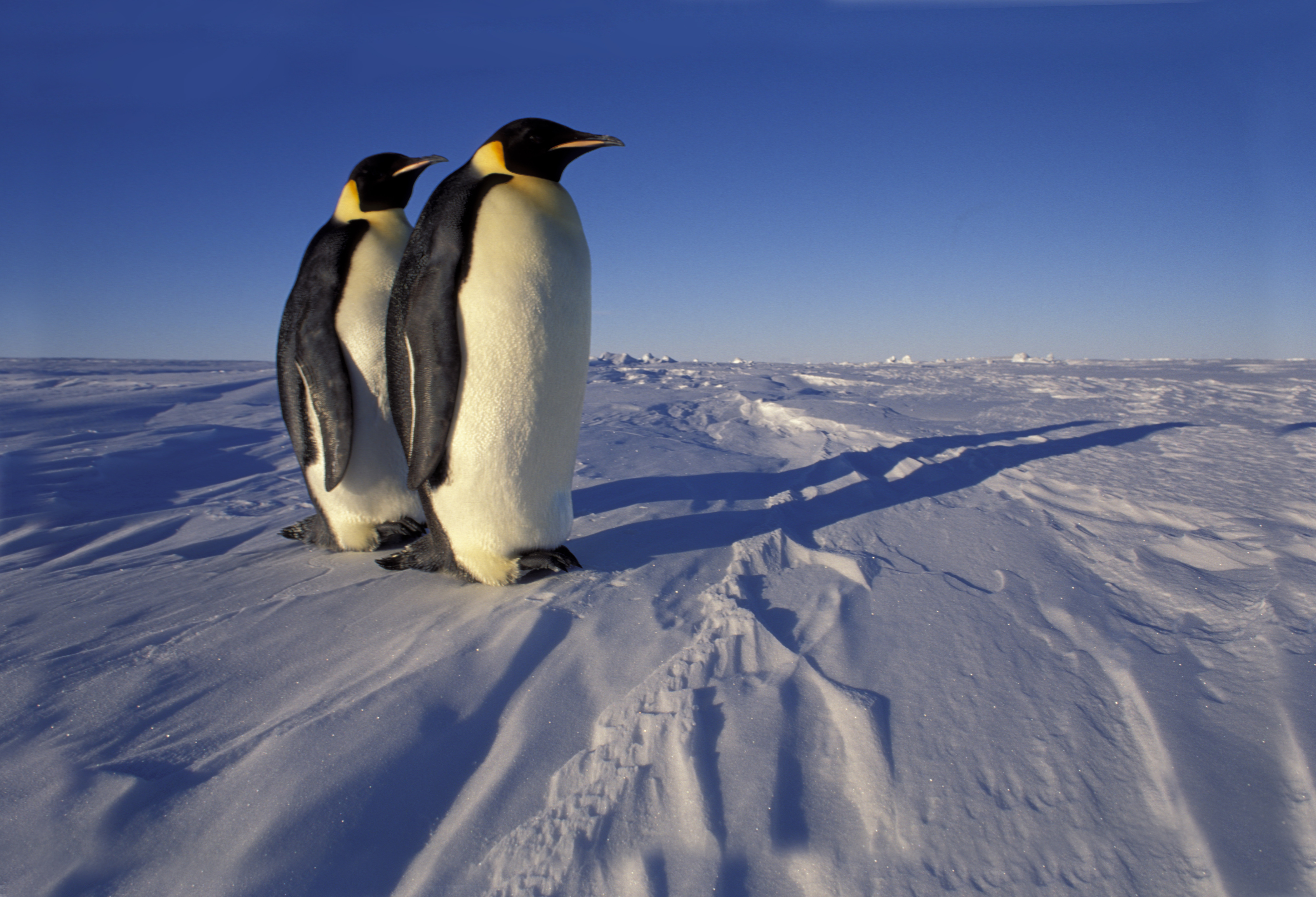
Visitors should vow to do no harm to nature and wildlife in Antarctica
People concerned about climate change and burning fossil fuels may have questions about the ethics of going to Antarctica. The IAATO promotes responsible travel to Antarctica, and its members have agreed that their activities must have less than a minor or transitory impact on the environment. Before landing on shore, travelers go through a decontamination process to make sure they are not bringing an invasive species to Antarctica, and this usually involves having every inch of their clothing, down to the velcro straps, vacuumed.
Dr. James McClintock, a marine scientist at Palmer Station in Antarctica, told Lonely Planet he used to be conflicted about tourism in Antarctica, but after 10 years of research and serving as a lecturer on cruises, he has found "the benefits far outweigh the negatives." There is a carbon footprint, but he said once visitors go home, they are "ambassadors of Antarctica" and "more appreciative of the urgent need to address global climate change by reaching out to their elected representatives on this issue."
Catherine Garcia has worked as a senior writer at The Week since 2014. Her writing and reporting have appeared in Entertainment Weekly, The New York Times, Wirecutter, NBC News and "The Book of Jezebel," among others. She's a graduate of the University of Redlands and the Columbia University Graduate School of Journalism.
-
 Political cartoons for February 15
Political cartoons for February 15Cartoons Sunday's political cartoons include political ventriloquism, Europe in the middle, and more
-
 The broken water companies failing England and Wales
The broken water companies failing England and WalesExplainer With rising bills, deteriorating river health and a lack of investment, regulators face an uphill battle to stabilise the industry
-
 A thrilling foodie city in northern Japan
A thrilling foodie city in northern JapanThe Week Recommends The food scene here is ‘unspoilt’ and ‘fun’
-
 Mail incoming: 9 well-made products to jazz up your letters and cards
Mail incoming: 9 well-made products to jazz up your letters and cardsThe Week Recommends Get the write stuff
-
 The 8 best superhero movies of all time
The 8 best superhero movies of all timethe week recommends A genre that now dominates studio filmmaking once struggled to get anyone to take it seriously
-
 One great cookbook: Joshua McFadden’s ‘Six Seasons of Pasta’
One great cookbook: Joshua McFadden’s ‘Six Seasons of Pasta’the week recommends The pasta you know and love. But ever so much better.
-
 How to navigate dating apps to find ‘the one’
How to navigate dating apps to find ‘the one’The Week Recommends Put an end to endless swiping and make real romantic connections
-
 February TV brings the debut of an adult animated series, the latest batch of ‘Bridgerton’ and the return of an aughts sitcom
February TV brings the debut of an adult animated series, the latest batch of ‘Bridgerton’ and the return of an aughts sitcomthe week recommends An animated lawyers show, a post-apocalyptic family reunion and a revival of a hospital comedy classic
-
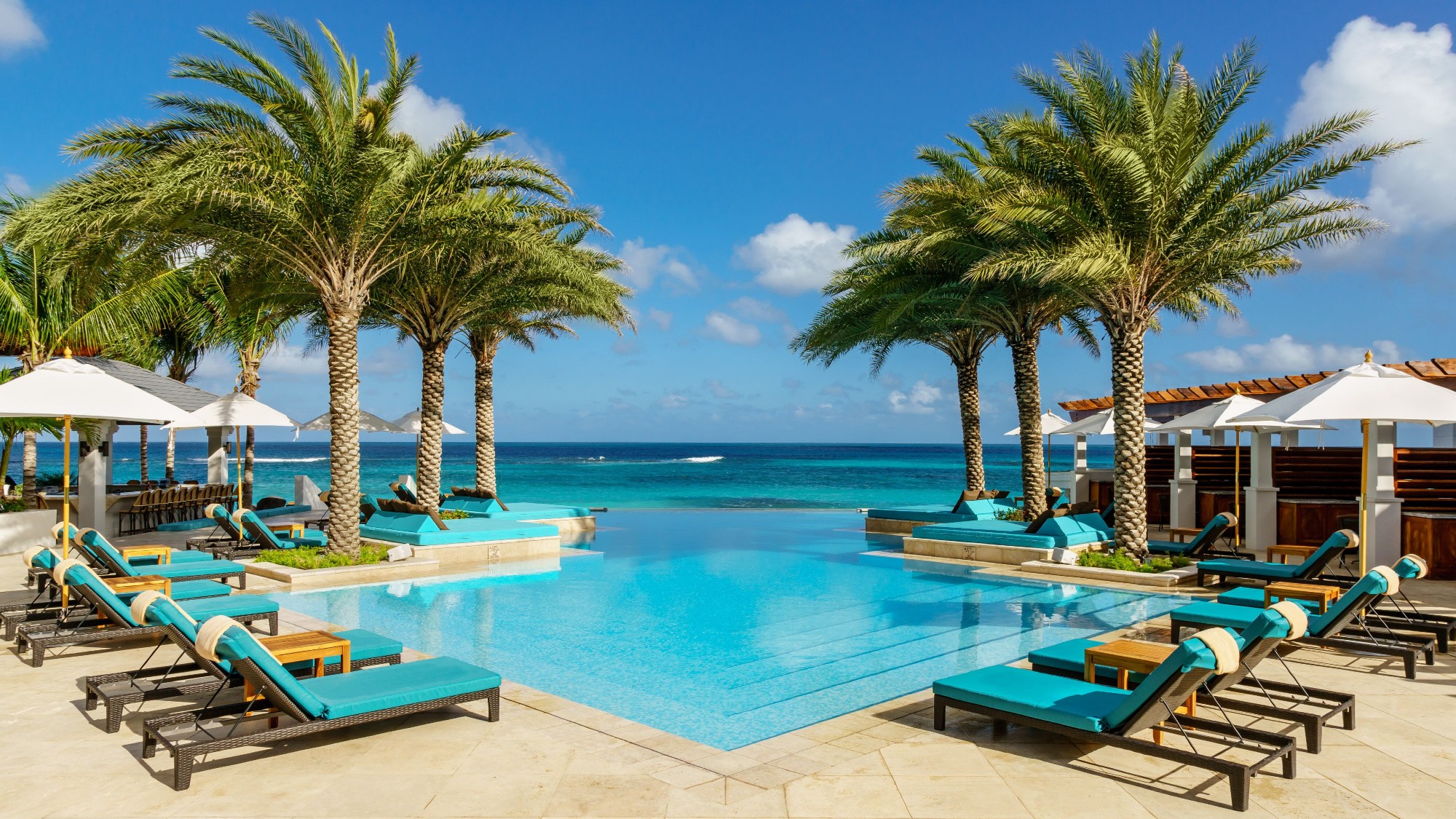 Caribbean resorts that call for serious rest and relaxation
Caribbean resorts that call for serious rest and relaxationThe Week Recommends Serenity is a flight away
-
 February’s books feature new Toni Morrison, a sapphic love tale and a criticism of Mexican history
February’s books feature new Toni Morrison, a sapphic love tale and a criticism of Mexican historyThe Week Recommends This month’s new releases include ‘Autobiography of Cotton’ by Cristina Rivera Garza, ‘Language as Liberation’ by Toni Morrison and ‘Heap Earth Upon It’ by Chloe Michelle Howarth
-
 Spoil those special someones with these charming Valentine’s Day gifts
Spoil those special someones with these charming Valentine’s Day giftsThe Week Recommends Make them ooh and aah
